
Your time is precious. We’ll give you a £40 voucher that you can use in supermarkets and shops to say thanks for taking part!


Your time is precious. We’ll give you a £40 voucher that you can use in supermarkets and shops to say thanks for taking part!
It is such an important time to be part of Children of the 90s! Our latest @30 clinic is the study’s largest ever data collection in participant numbers. It will help us better understand the causes of illness and disease; from diabetes to mental health, heart disease to COVID-19.
During your @30 clinic appointment, we take a detailed set of health measurements and samples. Some of these you may have done before, but there are lots of new measures we have introduced too – like the glycocalyx test or jumping measure. By attending, you will be contributing to a world-leading scientific data resource.
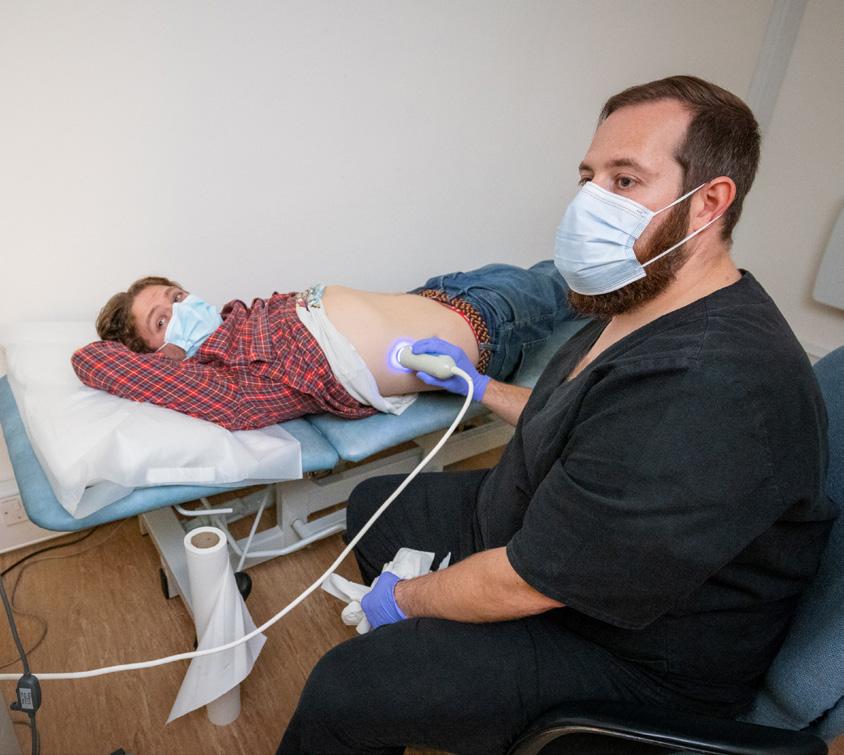
It doesn’t matter if we haven’t seen you for a while, your data is still important and you can still take part!
We’re over halfway through, so please keep an eye on your email for an invitation – and check your spam/junk folder too. Postal invitations should be sent by February 2023. If you haven’t had your email, please update your contact details on our website (bit.ly/CO90s-update-your-details)
You can contact the clinic team about @30 and book an appointment by email: visits@childrenofthe90s.ac.uk or phone: 0117 331 0011
As part of your clinic visit, you’ll do some tests which help researchers look at your muscles and bones. Even in your 30s, we can learn a lot about how your body changes over time. We’re trying to look at early signs of ageing by measuring your performance and strength.
We’ll measure your lower limb power, balance and the peak force of your muscles by getting you to jump, hop and balance on a special platform called a force plate. See image on front page for an example!
We use a spring dynamometer to look at how long it takes your muscles to get tired. It gives us an understanding of your overall physical fitness and the ability of your body to carry out day to day activities.
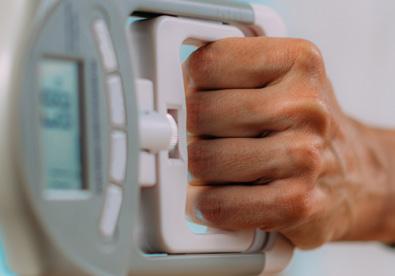
The cardiopulmonary exercise test (CPET) shows how your heart, lungs and muscles react when you exercise. The test measures your peak circulatory capacity. We will ask you to pedal an exercise bike for a maximum of 10 minutes. The resistance on the bike will increase gradually until you cannot move the pedals anymore. We will also ask you to wear a special face mask to measure the air you are breathing in and out. The results can be used to measure the impact of conditions like long COVID.
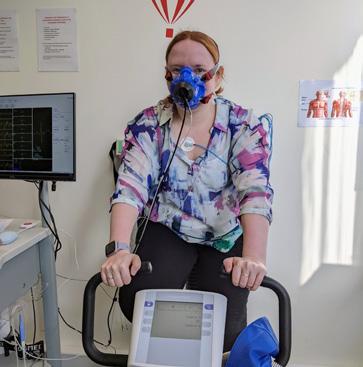
Liver disease is one of the leading causes of death among 35-49 year olds, and researchers using Children of the 90s data have discovered that 1 in 5 young people shows signs of fatty liver disease. During your appointment, we use an ultrasound to look at fibrosis build up, which will help researchers to find out the reasons for this scarring and whether it makes people ill now and as they get older.
“I enjoyed the CPET bike test, which almost makes you feel like an athlete!”
Elinor, Children of the 90s participant
What is your physical capability?
We do a range of measures during your appointment, and sometimes we feed back results to you and your GP if they look unusual. Our @30 Clinic Manager Dr Melanie Lewcock explains more:
“We would never call our clinics a ‘health check’ as that’s not at all what we are here for, so if you have symptoms that concern you, you should always contact your GP. We do, however, give feedback to our participants after their @30 clinic if specific results are different to what we’d normally expect to see.
“For example, with our young people – it could be high blood pressure, high blood sugar (an indicator of diabetes) or low haemoglobin (anaemia). For our original study parents, they may have a lower bone density (possibly indicating osteoporosis), and this can be picked up by the hip DXA scan.
“These differences may not give obvious symptoms but knowing about them early can allow them to be easily treated, often through lifestyle change.”
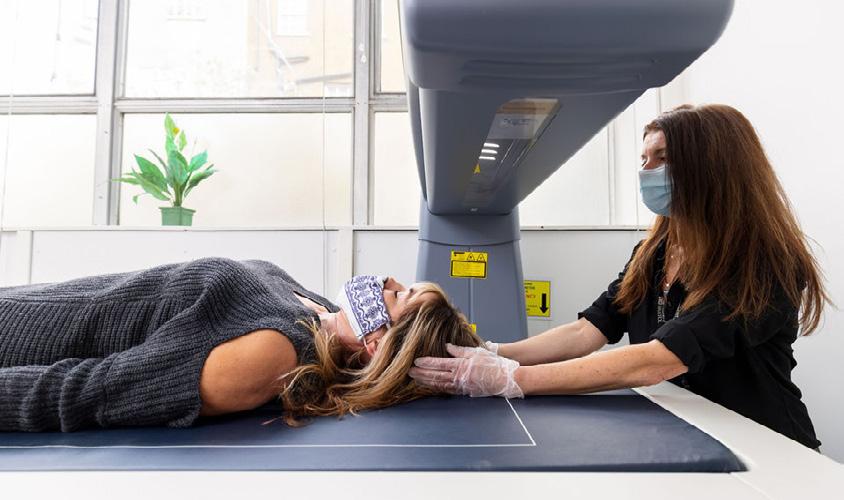
Earlier this year Rachael and Matt brought their children Eva and Luca for their Children of the Children of the 90s (COCO90s) appointments. Rachael says:
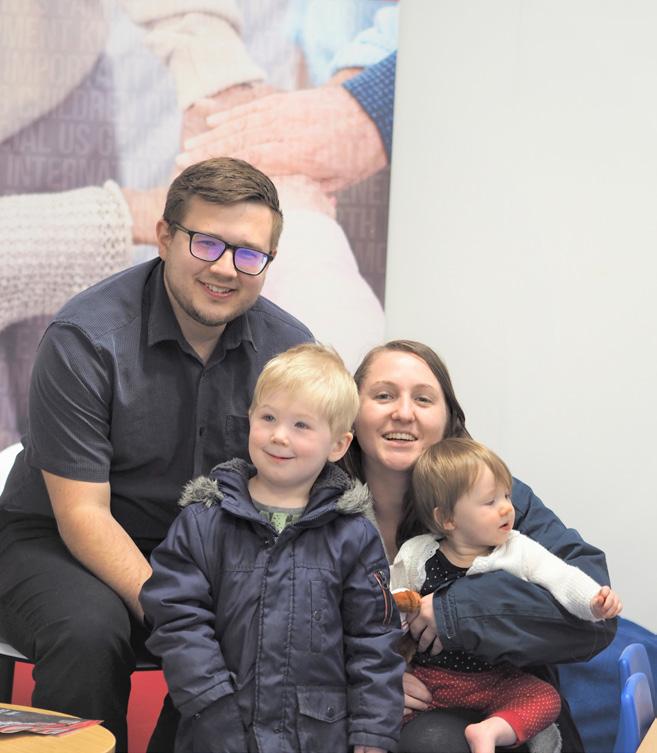
Appointments are available 7 days a week, including some evening slots.
We now have an online booking system to make it even easier to book or reschedule an appointment that is convenient for you! The link will be in your invite, and we’ll also be offering more weekend and evening slots in 2023 to make it easier for you to attend.
Rachael, Children of the 90s participant
“
“It feels like we’re unique and part of a special club that not everyone gets to be part of! I’ve always been interested in the research from a developmental point of view and I work with children now.”
Your information has been used in nearly 3,000 academic papers, with researchers all over the world conducting vital research. As a result, there have been numerous important discoveries. Here are just a few of our more recent discoveries (bit.ly/CO90s-discoveries)


Professor Giles Yeo explains how people living with obesity are fighting their biology.

In the UK, 200,000 people could carry a disruptive mutation of MC4R, a gene linked to early onset obesity. This makes their brains sense that they have slightly less fat than they actually do, driving them to eat more and gain excess weight in childhood.
People with the faulty appetite gene were on average 17kg (or 2.5 stone) heavier by the age of 18. Tackling the global obesity crisis requires genetic understanding, not moral judgements.
Body weight is not a choice
Watch the videos and discover more by scanning the QR code
Dr Caroline Taylor explains why you don’t need to worry about picky eaters.
Children who had picky eating habits at three years old turned out to have a normal height, weight and body mass index (BMI) during adolescence.
Children described as picky eaters between two and seven years-old ate less meat, fruit and vegetables than those who were not picky eaters.
Children who weren’t given solid foods until they were 9 months old were more likely to be fussy about their food by the time they turned three years old.

Professor Rebecca Pearson explains that depression is at least as common during pregnancy as after birth.
Anxiety and depressive symptoms during pregnancy have risen by 51% within a generation.
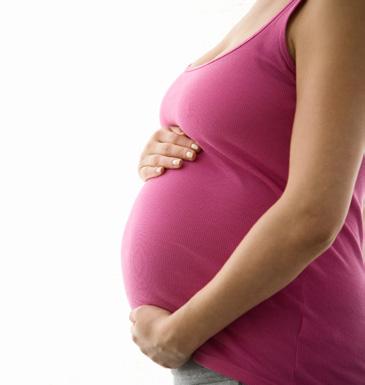
Uniquely in Children of the 90s we’ve been able to study two generations of mothers. Research using Children of the 90s data is cited in national NHS documents and national guidance on perinatal mental health.
The study has helped raise awareness of antenatal depression, reducing the sense of isolation that some women might feel and helping them realise that many others feel the same.
During the pandemic, researchers wanted to see the impact it was having on mental health.
Many studies don’t have pre-pandemic data on mental health, but thanks to the wealth of data we hold, Dr Alex Kwong and his team used information collected in questionnaires from as far back as 1999 as well as over the last 2.5 years.
Statistically men are less likely to take part in research, but we need both men and women to ensure that our data represents the community.
The team found that the number of young people with anxiety doubled from 13% before the pandemic to 27% by January 2021. However,
in the summer of 2021, the number of young people with anxiety had decreased to around 20%, and the number of people with depression was at its lowest level in over a decade.
Dr Alex Kwong says: “It is likely that our findings, such as individuals living alone during the pandemic being at greater risk of depression, contributed to changes in policy regarding the formation of social bubbles.”
The diagram below shows how your data was used in this research...
*THIS RESEARCH USED DATA FROM A LONGITUDINAL STUDY LIKE OURS CALLED GENERATION SCOTLAND
Participants provide data from the online COVID-19 questionnaires
Questionnaire
responses are extracted, encrypted and de-identified
Data is stored a secure computer system
Results were shared with SAGE - the government’s Scientific Advisory Group for Emergencies
“It’s important that both men and women come to their @30 clinic visit so we can see if there are any important differences in mental health, and in turn find out who might need support and when”
Dr Alex Kwong, Senior Research Associate
stored on computer system
We can give you a letter for your employer so that you don’t have to take paid leave.
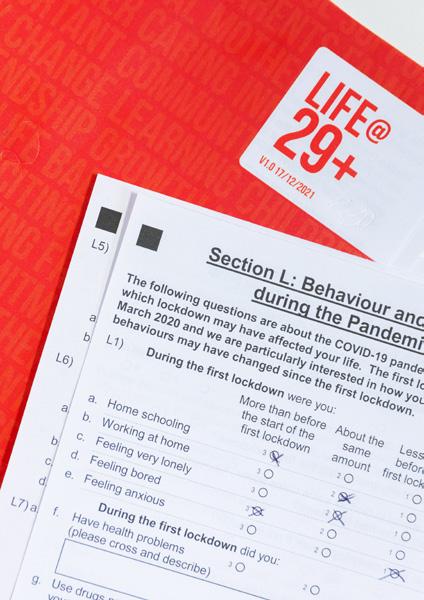
Alex Kwong and his team apply to access specific data for their research
The data is analysed by a team of researchers
The research was published in the British Journal of Psychiatry
Research was written up and reviewed before publication
Next page: Your data and long COVID research
We’re proud to be part of a national study called CONVALESCENCE, which brings together participants from several longitudinal studies, and is the first of its kind to look at long COVID.
Some of our participants are going to University College London to take part in the clinic. It includes respiratory, cardiovascular and fitness tests, along with MRI scans, which enable researchers to look for signs of damage to their brain, lungs and heart. They will also wear a smartwatch linked to a mobile app, and will report on symptoms such as fatigue, physical fitness, brain fog and poor mental health for the following year. Children of the 90s participants Michael and Joe are taking part in this study and appeared on BBC Points West earlier this year. The findings of this study will help define NICE guidelines used by doctors to formulate treatments.
Debilitating symptoms are roughly four times as common in 60-yearolds than 20-year-olds
Females are more likely to experience long COVID
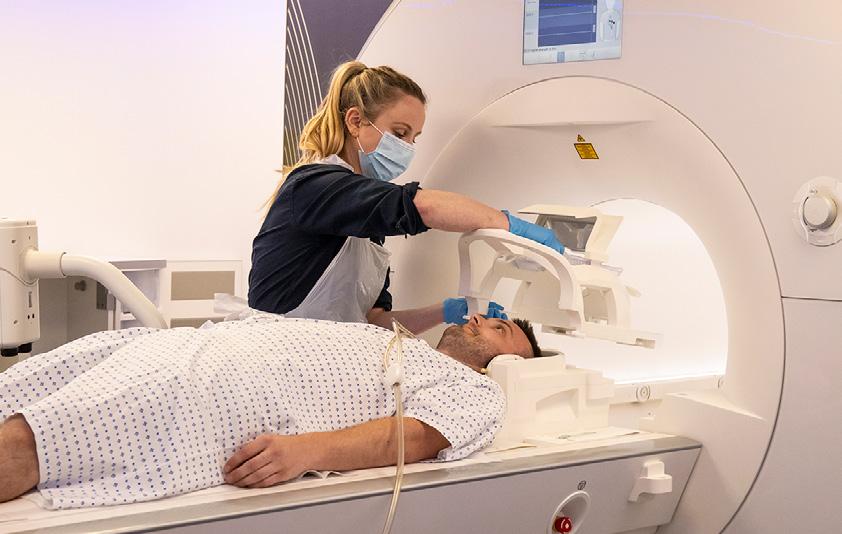
Having asthma or being overweight are risk factors for long COVID
Follow this link to see our press coverage: bit.ly/CO90s-News or scan the QR code

In our third antibody study back in March we analysed almost 3,000 of your blood samples. For the first time, we looked at the level of the different types of antibodies generated by COVID-19 vaccinations and infections.
More people had antibodies from a vaccination, rather than an infection
Our original Children of the 90s were more likely to have had an infection (67%) than their parents (50%)
A previous COVID-19 infection is more likely to protect from serious disease

We’re part of the COVID-19 National Core Studies (NCS), which brings together scientists and studies like ours across the UK to look at the impact of the pandemic. CONVALESCENCE is just one of the important pieces of research which is being carried out by the NCS.
Next page: You are making a difference!
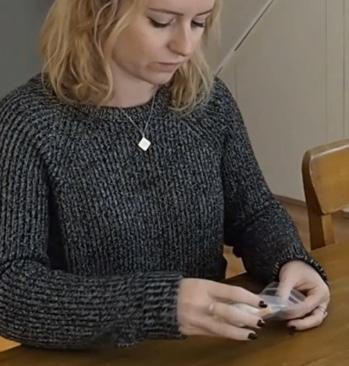
What did we learn from your antibody test results?
This programme has helped create and increase access to valuable data assets that will continue to support UK researchers beyond COVID-19.”
The government’s Chief Scientific Advisor, Sir Patrick Vallance
“
Fertility treatment concerns on children’s development are unwarranted New research found differences in the growth, weight, and body fat levels of children conceived through fertility treatment are small, and no longer apparent by late adolescence.

Dr Ahmed Elhakeem, Senior Research Associate in Epidemiology, Bristol Medical School says:
“Since the first birth of a child by IVF, concerns have been raised about the risks to the children conceived. Parents and their children conceived by ART can be reassured that this might mean they are a little bit smaller and lighter from infancy to adolescence, but these differences are unlikely to have any health implications.”
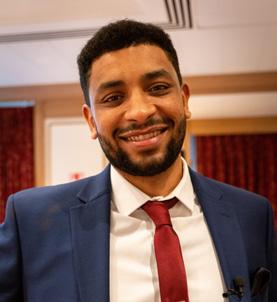
Earlier this year, scientists from Bristol and Denmark published research which found that smoking cigarettes may increase the risk of a heart attack through the activation of a gene that affects blood clotting.
Dr Laura Corbin, Research Fellow, Bristol Medical School says:

“This work is vital in understanding how smoking can lead to an increased risk of heart attacks. Crucially, whilst the changes to this gene appear to be reversible, our data showed that it can take many years for levels to return to normal after a person gives up smoking. This finding therefore provides more evidence of the devastating impact smoking has on our bodies.”
Lifestyle more likely to affect a child’s BMI than the weight of their mother
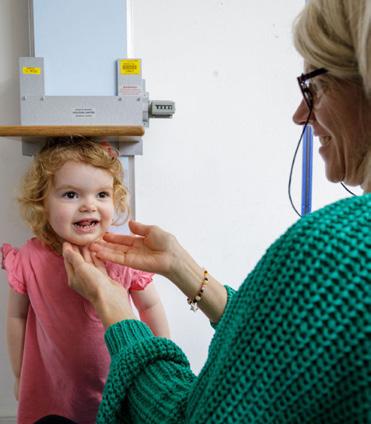
Researchers from the University of Bristol and Imperial College London have found that a high Body Mass Index (BMI) of a mother before and during pregnancy is not a major cause of high BMI in their children – indicating that childhood and teen obesity is more likely to be a result of lifestyle factors.
Coming from further afield? We’ll pay for overnight accommodation too.
Reflecting and representing the needs of our community is important to us. We are constantly striving to improve our clinic and questionnaires, to reflect the needs of our participants. Some items we have recently put into place to acknowledge gender identities include:
Gender awareness training for both clinic and office staff
Changes to the study clinic, participant records systems and questionnaire to include all gender identities and chosen pronouns
Disabled and gender-neutral toilets in our clinic setting
More information on our website for participants
We really value your views. Please let us know if there is anything we can do to make it easier for you to attend your @30 clinic appointment.
Your questionnaires matter!
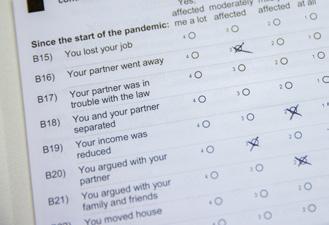
Each questionnaire you complete has the potential to change policy from the ground up. Our latest questionnaire has questions covering the cost-of-living crisis, and so it’s even more vital that you keep taking part.
If you know someone who hasn’t done anything for a while, they can get back in touch on our website (bit.ly/CO90s-update-your-details) and receive a £20 voucher.
Listen again to our founder Professor Jean Golding being interviewed on BBC Radio 4’s Desert Island Discs by scanning the QR code. Or click here to give it a listen!

www.bbc.co.uk /programmes /m001f5dv
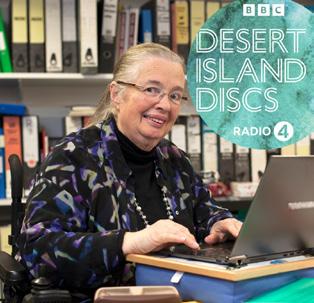
Esther and her daughters, Josie and Zara, have been in the study since the start – and now their children are too!

“When
hear about some breakthrough research that is helping to save lives, and it mentions that it’s used data from the study, it makes you feel like you’ve done something to help.”
Esther, original parent of the 90s
Bring your friends and family! We offer same day @30 appointments.
Bristol Bears & England rugby player Amber is a Children of the 90s participant. She attended her @30 clinic visit recently.
Amber, Children of the 90s
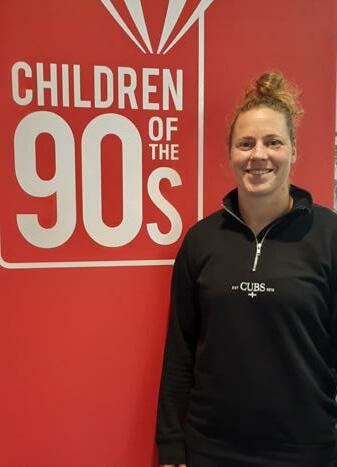
you
“
“I’m proud to be part of such a long study that spans generations and helps the future.”
participant
How is it winter already! I have that feeling that it is not five minutes from the emergence of the spring, even less time from the highs of the summer. With time, however, brilliant contributions to science and understanding have come, helped by your dedication to the Children of the 90s work. It is always humbling to see these outputs and we must thank you for making it all possible. It is what Children of the 90s is all about!
As you all know, we are doing two major things right now. Firstly, we are trying to reduce the number of questionnaires and online activity, following what was an incredibly busy pandemic period. It was such an amazing response to the needs of those times, but we know that we now need to create more space. This is important to us and speaks to the second major activity which is our face-to-face @30 clinic. This is the beating heart of the study and a coming together of all participants to donate time, samples and data to the next wave of important health and wellbeing research.
And we need you. Things are looking great in the clinic at the moment. We have created sessions that can be flexible to you and your family or circumstances, have letters for employers to help with the time away and of course make the experience fun, informative and financially beneficial rather than a cost.
If you’d like to keep up to date on all our latest news, research and findings – plus the odd trip down memory lane – then come and join us on social media.
However, we have ambitious targets and really (really!) need to see you all. If you are thinking about it – just go for it – if you are thinking maybe not, then reach out to us, or friends or family and let us help you understand the amazing impact your time can have on research into health and wellbeing at all levels.
Once again – thank you – you make Children of the 90s the internationally recognised and unique research hub that it is.


To get back in touch simply send your full name and date of birth to:


Email: info@childrenofthe90s.ac.uk
Phone: 07772 909090
Perhaps you have a friend or family member who used to be part of the study – be sure to share this with them too!
Children of The 90s @co90s
Professor Nic Timpson, Principal Investigator, Children of the 90s